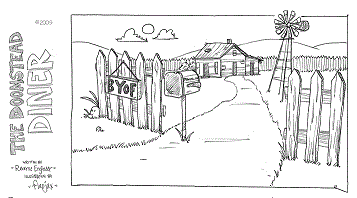Ein Ausfall Vorzubereiten
http://outlawjimmy.com/uk/ein-ausfall-vorzubereiten/
Update 2/11/12 REV.
Preparedness Manual – http://tomeaker.com/kart/Preparedness1j.pdf
- Be willing to go through the painful process of acknowledging the uncertainty of our future. I compare it with the Kubler-Ross grief process:<br ?–>Denial (Normalcy Bias rearing its ugly head!),
- Anger — at politicians, circumstances, family members),
- Bargaining (“If I can just buy enough precious metals, we’ll be okay.”),
- Depression (Our children aren’t facing the same, sunny future that we did, America is changing before our eyes)
- Acceptance (I can’t do everything, but I can be proactive and do what I can.)
- Face facts, don’t hide from them. Confront financial difficulties, acknowledge your limits. Only when you face reality can you prepare for it.
- Trust your instincts. Headlines change on a dime. Take in a much bigger picture than a single, optimistic headline or the words of a politician seeking re-election. Trust your own five senses and what your gut is telling you.
- Start where you are with what you have.
- Fight feeling overwhelmed with lists and organization. Focus on what you will do today, this week, this month. Little by little it will all come together.
- Reach out to others. Start your own Survival Mom meet-up group. Spend time on preparedness and survival forums, as long as they don’t feed your fears. If there was ever a time for people to come together, this is it.
- It’s better to over-prepare than to be under-prepared. Normalcy Bias assures us that everything will be okay. A few extra bottles of water is all you really need. Those ten cans of tuna will be plenty! Go ahead and stock up more than you think you’ll need to.
- Make plans for scenarios that may be a bit far out but still within the realm of possibility.
- Make plans. Have an evacuation plan, and prepare for it. Have a hunker-down plan, and prepare for it. Decide ahead of time how you will face the most likely crises and communicate those plans with those who need-to-know. Write down your plans! Panic and stress have a way of erasing the logical parts of our brains!
- Be ready to act quickly and decisively. It’s better to take action too soon than too late.
- Take time off. Forget you ever heard of the word, ‘preparedness’. Go shopping and blow a few bucks on something completely unnecessary. Go out to lunch. Play with the kids. Spend an hour on the phone gossiping with your best friend. Give yourself a mental break! Your family needs you to be strong. You need to take care of yourself, body, soul, and spirit.
- Get physically fit. There is a huge connection between physical and mental fitness. Start with some sort of exercise and start today.
PLUS
What to Always Keep in Your Pantry
These items have lengthy expiration dates, so you can stash them away for long periods of time. Make a list of everything in your stockpile and check expiration dates every 6 to 12 months to keep things fresh. And don’t forget to have a can opener on hand at all times–all that food won’t be of any use if you can’t open it.
- Water – 2.5 litres per day per person
• Peanut butter A great source of energy, peanut butter is chock-full of healthful fats and protein. Unless the jar indicates otherwise, you don’t have to refrigerate after opening.
• Whole-wheat crackers Crackers are a good replacement for bread and make a fine substitute in sandwiches. Due to their higher fat content, whole-wheat or whole-grain crackers have a shorter shelf life than their plain counterparts (check the box for expiration dates), but the extra fiber pays off when you’re particularly hungry. Consider vacuum-packing your crackers to prolong their freshness.
• Nuts and trail mixes Stock up on these high-energy foods-they’re convenient for snacking and healthful. Look for vacuum-packed containers, which prevent the nuts from oxidizing and losing their freshness.
• Cereal Choose multigrain cereals that are individually packaged so they don’t become stale after opening.
• Granola bars and power bars Healthy and filling, these portable snacks usually stay fresh for at least six months. Plus, they’re an excellent source of carbohydrates. “You can get more energy from carbohydrates without [eating] tons of food,” Andress says.
Related: The Best Breakfast Cereals
• Dried fruits, such as apricots and raisins In the absence of fresh fruit, these healthy snacks offer potassium and dietary fiber. “Dried fruits provide you with a significant amount of nutrients and calories,” Swanson says.
• Canned tuna, salmon, chicken, or turkey Generally lasting at least two years in the pantry, canned meats provide essential protein. Vacuum-packed pouches have a shorter shelf life but will last at least six months, says Diane Van, manager of the USDA meat and poultry hotline.
• Canned vegetables, such as green beans, carrots, and peas When the real deal isn’t an option, canned varieties can provide you with essential nutrients.
• Canned soups and chili Soups and chili can be eaten straight out of the can and provide a variety of nutrients. Look for low-sodium options.
• Bottled water Try to stock at least a three-day supply–you need at least one gallon per person per day. “A normally active person should drink at least a half gallon of water each day,” Andress says. “The other half gallon is for adding to food and washing.”
• Powdered milk Almost all dairy products require refrigeration, so stock this substitute for an excellent source of calcium and vitamin D when fresh milk isn’t an option.
• Sugar, salt, and pepper If you have access to a propane or charcoal stove, you may be doing some cooking. A basic supply of seasonings and sweeteners will improve the flavor of your food, both fresh and packaged.
• Multivitamins Supplements will help replace the nutrients you would have consumed on a normal diet.































